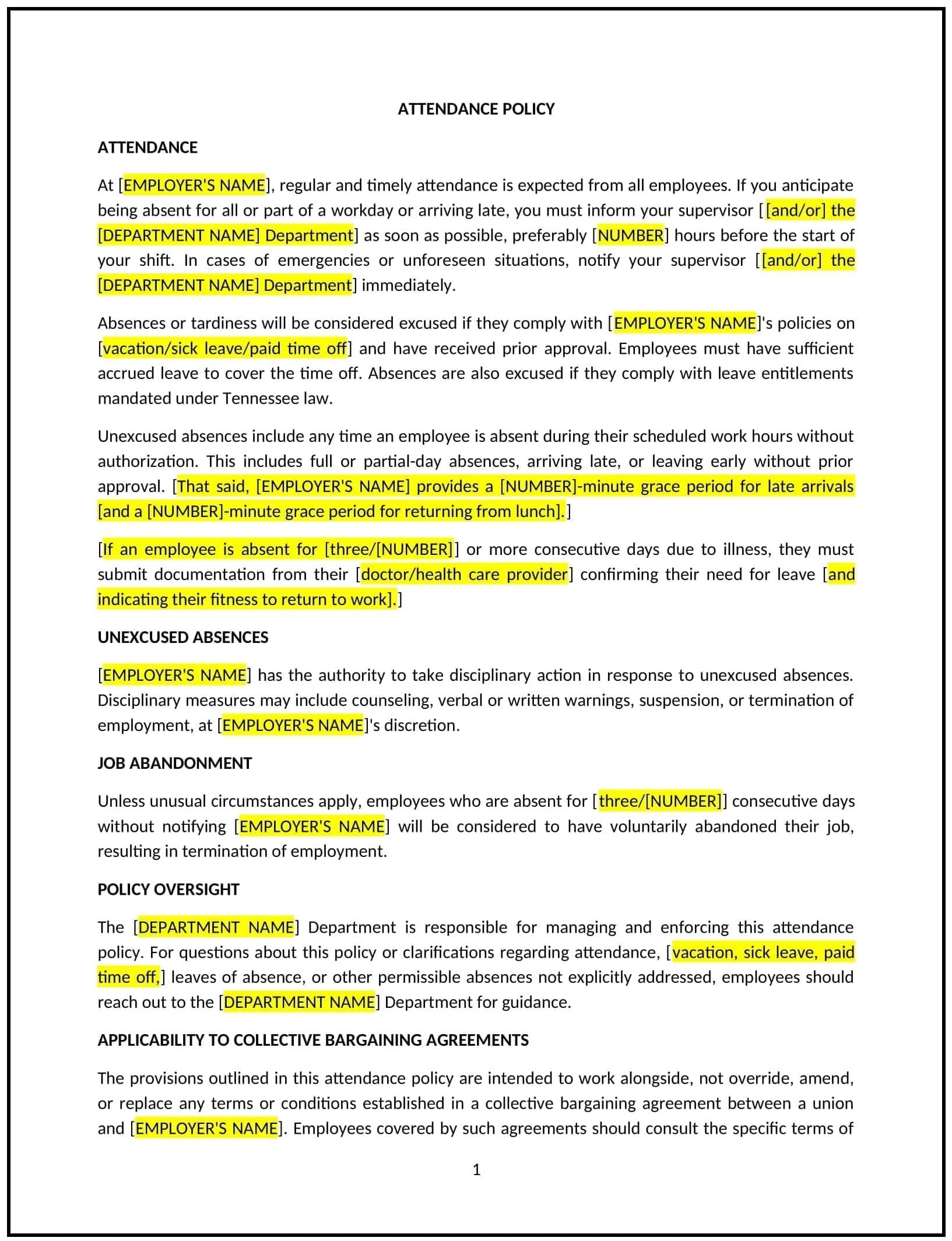Got contracts to review? While you're here for policies, let Cobrief make contract review effortless—start your free review now.

Customize this template for free
Attendance policy (Tennessee)
This attendance policy is designed to help Tennessee businesses create guidelines for managing employee attendance and punctuality. It outlines procedures for reporting absences, requesting time off, and addressing attendance issues.
By adopting this policy, businesses can maintain productivity, reduce disruptions, and promote accountability in the workplace.
How to use this attendance policy (Tennessee)
- Define expectations: Clarify the business’s expectations for attendance and punctuality, including work hours and break times.
- Set reporting procedures: Provide steps for employees to report absences or request time off, including notice requirements.
- Address paid vs. unpaid leave: Explain the types of leave available, such as sick leave, vacation, or personal days, and whether they are paid or unpaid.
- Outline consequences: Specify the consequences for excessive absences or tardiness, such as warnings or disciplinary action.
- Train managers: Educate supervisors on managing attendance issues and maintaining workflow during employee absences.
- Review and update: Assess the policy annually to ensure it aligns with evolving business needs and employee expectations.
Benefits of using this attendance policy (Tennessee)
This policy offers several advantages for Tennessee businesses:
- Maintains productivity: Reduces disruptions caused by unexpected absences or tardiness.
- Promotes accountability: Encourages employees to meet attendance expectations and take responsibility for their schedules.
- Aligns with state laws: Helps businesses comply with Tennessee’s legal requirements for leave and attendance.
- Enhances fairness: Provides clear guidelines to ensure consistent treatment of all employees.
- Reduces turnover: Builds trust by demonstrating a commitment to work-life balance and employee well-being.
Tips for using this attendance policy (Tennessee)
- Communicate the policy: Share the policy with employees and include it in the employee handbook.
- Provide training: Educate managers on managing attendance issues and maintaining workflow during employee absences.
- Monitor compliance: Regularly review attendance records to ensure adherence to the policy.
- Address issues promptly: Take corrective action if attendance problems are reported or observed.
- Update regularly: Assess the policy annually to ensure it aligns with evolving business needs and employee expectations.